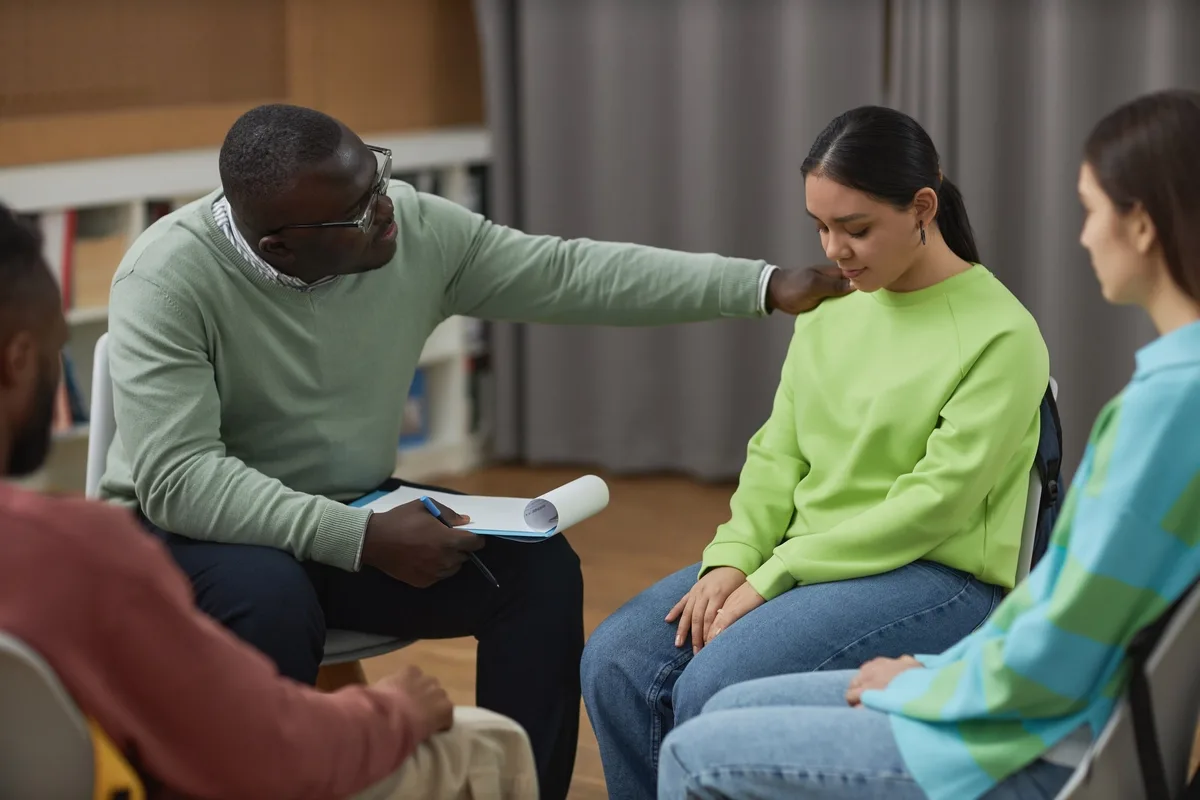24/7 Helpline:
(866) 899-111424/7 Helpline:
(866) 899-1114
Learn more about Cocaine Detox centers in Marshall County

Other Insurance Options

EmblemHealth

Multiplan

Oxford

Horizon Healthcare Service

Meritain

Highmark

CareFirst

Regence

Health Choice

Carleon

Humana

Optima

Health Net

Excellus

Anthem

ComPsych

Cigna

Absolute Total Care

WellCare Health Plans

MHNNet Behavioral Health














AA – Alcoholics Anonymous
AA – Alcoholics Anonymous is a private rehab located in Gilbertsville, Kentucky. AA – Alcoholics Ano...






































